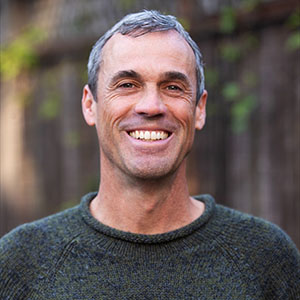Executive Summary
Big wins in public policy in the United States capture the popular imagination, animate public discourse, and change society in important ways. Think of modern environmental laws in the United States, like the recently passed Inflation Reduction Act and its expected impact in dramatically cutting greenhouse gases. Think of the Affordable Care Act, which has brought the number of uninsured people to the lowest levels in American history. Or the Supreme Court’s decision in New York State Rifle and Pistol Association v. Bruen that guaranteed the right of individuals to carry firearms in public.
More Ways to Listen
Podcast: The Power of Incremental Change in AdvocacyBridgespan's William Foster and Deborah Bielak speak with "Business of Giving" host Denver Frederick.
For many—engaged citizens, activists, and donors across ideological perspectives—the scale and urgency of injustices focus attention and action on these major, nationwide moments. However, these monumental turning points are most often the accrual of decades of deliberate small steps—incremental policy changes—by thoughtful and strategic advocates on the road to the big win.
Consider the Supreme Court ruling that brought an end to state bans on marriage for same-sex couples. That was the result of 88 smaller policy victories, at least 23 major setbacks, and 22 years of disciplined work in the making, including 12 years of work by a purpose-built organization to push the policy across the finish line. Marriage for same-sex couples was legal in 37 states and the District of Columbia before it became the law of the land nationwide.
A deeper dive into related research
Bridgespan has a growing body of knowledge work at the intersection of policy, advocacy, and philanthropy.
- For a closer look at the sequence of events over decades for two policy change movements, explore our interactive timelines for sentencing reform and marriage equality.
- For an overview of how and why funders may use different advocacy tools, see our recent publication “Using All the Tools in the Toolkit: Funding Advocacy for Social Change.”
- For a primer on politically active philanthropy, see our 2018 Stanford Social Innovation Review article “When Philanthropy Meets Advocacy.”
When we analyzed 10 major, national policy advances in the United States over the past century—progressive to conservative—we found that time and again those “big wins” accrued from a strategic, sustained approach. Two steps forward, one step back, over a long haul. On average, those big policy victories came from at least 40 smaller wins over 25–30 years.
Opportunity abounds for steady, sustained philanthropic investment to fuel incremental achievements that realize landmark victories. This article relies on The Bridgespan Group’s experience with social movements and insights from interviews with more than 20 movement leaders, advocates, philanthropists, and heads of intermediary organizations. In our own experience, a focus on a state-by-state and step-by-step incremental approach can address many of these barriers to funder engagement. It can lower the impression of risk, help make progress tangible, and offer discrete observable milestones that demonstrate impact.
We describe an approach to policy change that differs sharply from the default mindsets of many funders. This article highlights the often quiet, always persistent work of advocates whose efforts have strategically reshaped the policy landscape of our country over the past century. We point to the barriers—and inroads—to broader funder engagement in this work. We explore the anatomy of several successful policy movements, share new data on policy advances in the United States, and show how intermediaries, often purpose-built, can be crucial drivers of that steady effort on the road to a major, national policy win. And we look at the current landscape of opportunity for funders—our primary audience for this piece—to engage in this pathway toward systemic social change.
 The White House lit up in rainbow colors to commemorate the US Supreme Court's decision affirming the constitutional right of same-sex couples to marry in June 2015. (Photo: AdobeStock/renaschild)
The White House lit up in rainbow colors to commemorate the US Supreme Court's decision affirming the constitutional right of same-sex couples to marry in June 2015. (Photo: AdobeStock/renaschild)
Anatomy of a Successful Movement
The 10 major US policy movements we studied shared prominent elements that epitomize an incremental approach. We focus on how those elements show up in a few of those policy movements: sentencing reform, marriage equality, increasing the minimum wage to $15 per hour, and marijuana legalization.
- Multiple battlefields with the potential for wins.
A key facet of all the movements we analyzed was the ability to locate several battlefields that offer real promise of victory based on carefully considered opportunity mapping. Social movement-driven policy change rarely starts with legislators in DC. It almost always starts locally—often at the municipal or state level. - Policy change follows narrative change.
Efforts of ambitious policy reform can’t take flight without deliberate narrative change. Effective narrative creates meaningful connections across differences, moves us to be more empathetic, and galvanizes people around what’s possible. - Embracing strange bedfellows.
Successful movements also recognize the importance of embracing unlikely allies—it scrambles fixed lines of conflicts, enabling progress on divisive issues. - Intermediary organizations supercharge movements.
Most of the movements we analyzed saw the emergence of highly effective “intermediary organizations” driving national strategy—groups that recognize the centrality of incremental wins in reaching bold outcomes and focus on executing a multiyear strategy to achieve those wins and bring about those outcomes.
Policy change is not as fraught as it may seem. The potential for philanthropic impact remains largely untapped and the landscape of opportunity is rich. We encourage funders to become familiar with outstanding intermediary organizations that pursue ambitious, incremental strategies toward transformative ends. And we encourage funders to support these intermediaries with flexible, long-term funding that enables them to be responsive and opportunistic, while also building durable infrastructure that can be used in the next phase of the movement or when the inevitable backlash occurs.





